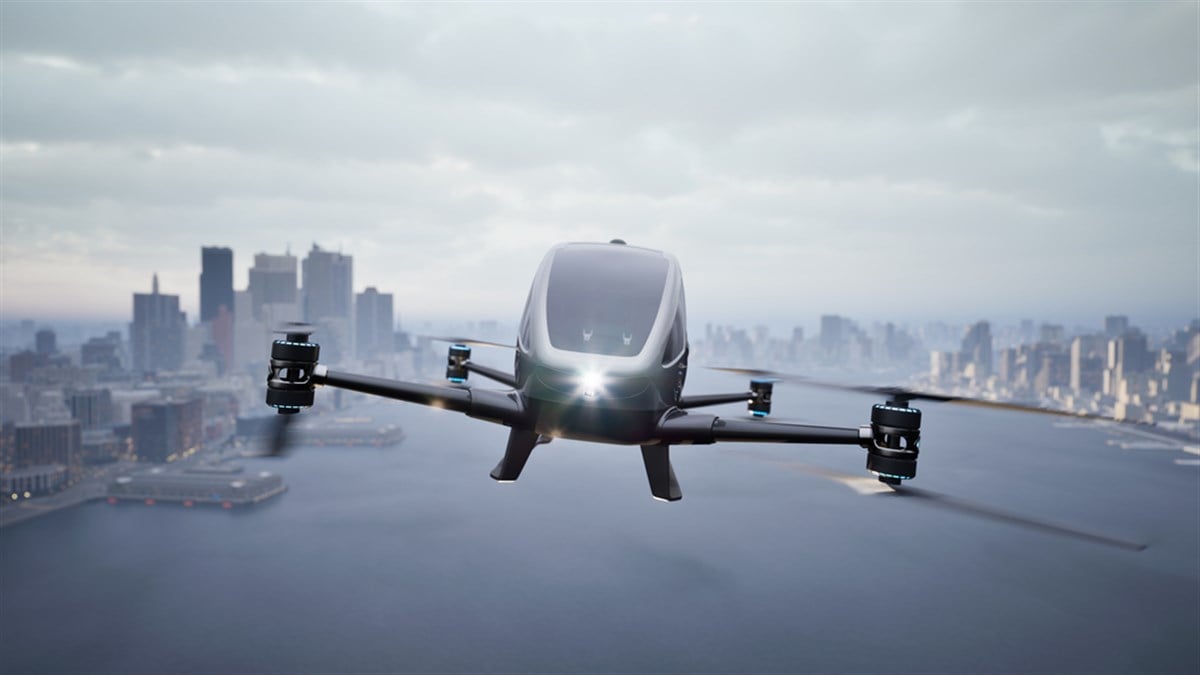
Blade Air Mobility (NASDAQ: BLDE) is not only a stock with an interesting name, but it could also be a big-time investment, according to Wall Street analysts. Its average price target of $7.30, implies this stock could provide a double bagger return or greater.
However, the skies haven’t been all that clear lately for the firm’s share price. The company’s three-year total return is -67%, and year to date, it's down 18%. This leaves the industrial company greatly trailing its sector in 2024. The Industrial Select Sector SPDR Fund (NYSEARCA: XLI) has provided a total return of over 12%.
Let’s explore what exactly Blade Air Mobility does and its opportunities to understand the potential reasoning behind analysts' bullishness.
Blade: An Innovator in Urban Air Logistics
Blade has two operating segments: Passenger and Medical. The Passenger segment consists of two key products: short-distance and jet. The short-distance product provides helicopter and seaplane travel in the U.S., Canada, and Europe for distances under 100 miles.
Meanwhile, the jet product primarily generates revenue through charters and by-the-seat transport between New York and South Florida.
One key point about Blade’s business model is that it only owns 10% of its aircraft. Described as "asset-light," the company contracts out most of the actual flying to third parties. Blade pays these parties fixed hourly rates, ensuring that they only bear costs when flights actually occur.
Blade provides value in organizing the logistics of this travel. Its “customer-to-cockpit” software allows it to manage and track flights in real-time. It also provides passengers, pilots, and hospitals with customized information that is important to them.
The Medical segment contains the MediMobility Organ Transport service. This service transports human organs from donors to recipients quickly. When donating organs, it is important to complete the process fast.
For example, if someone needs a heart transplant, they will only be able to get it from a recently deceased donor. Once you remove the heart from the body, it can only survive for several hours. In this scenario, Blade’s software would organize the logistics of transporting the organs quickly. Blade’s aircraft operators would then transport the heart from the donor’s hospital to the recipient's hospital to help ensure the transplant would be successful.
At the beginning of the firm’s history, its passenger segment was the primary source of revenue. However, in 2022, the company unlocked a massive demand in the medical segment, and revenues increased by 380%.
Mixed Recent Financial Performance
Strong growth in the segment continued in 2023, with revenue rising 76%. Over the past six months, MediMobility made up 62% of the firm’s total revenue. Short distance accounted for 26%, and Jet accounted for 12%.
Over two of the last four quarters, the company has achieved positive earnings before interest, taxes, depreciation, and amortization (EBITDA). The first time it achieved this was in Q3 2023. The operating margin of the last 12 months improved from -41% in Q2 2022 to -17% in the latest quarter.
However, revenue growth has slowed rapidly, coming in at just 11% last quarter. Blade is still a small firm and needs to find a way to grow faster.
Geographic Expansion and Next-Gen Aircraft Could Reinvigorate Growth for Blade
In the long term, analysts may base their lofty price targets for Blade on an infusion of growth and profitability through two ways: geographic expansion and Electric Vertical Aircraft (EVAs). Blade has a lot of room to expand within the U.S., where it gets 84% of its revenue.
Blade's primary markets right now are New York, Los Angeles, and Miami, but it can still expand to many other cities throughout the country and internationally. Blade's new partnership with Qatar Airways will connect customers with helicopter transit to Monaco.
Additionally, the adoption of EVAs could help reduce costs and increase profits. Companies like Joby Aviation (NYSE: JOBY) and Archer Aviation (NYSE: ACHR) are working on this technology. Experts expect Joby's revenues to rise to $1.8 billion by 2029. Today, they are almost nothing. This suggests a potential explosion in demand for this technology over the coming years.
Blade predicts that using EVAs could immediately translate to a 14% cost reduction per flight and, over time, a 24% cost reduction. This would go a long way toward helping the firm be consistently profitable. It could also promote growth, allowing the firm to charge lower rates and reach a group of less wealthy customers.














